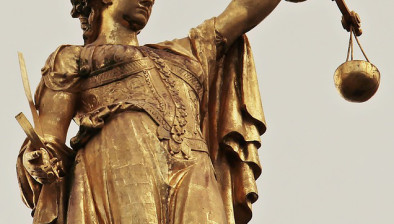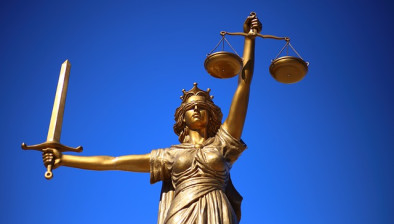High Court: Man awarded €500 in defamation claim against Luas operators
A man who was ordered to get off the Luas despite having a valid ticket has been awarded €500 in the High Court.

About this case:
- Citation:[2019] IEHC 849
- Judgment:
- Court:High Court
- Judge:Mr Justice Anthony Barr
Finding that the man had been defamed by the security guard who tried to put him off the train, Mr Justice Anthony Barr said that the “fleeting defamation” was “almost immediately expunged” and therefore warranted nominal damages in circumstances where there was no lasting damage to the man’s good name or reputation.
Background
On 8 June 2016, Leon Diop had just boarded a Luas tram with his brother when two security guards approached them and demanded production of their tickets. As he produced his ticket, Mr Diop said to the security guards “this is slightly racially profiling”. One of the security guards, Mr Fay, said they were checking their tickets because of “the other three gentlemen we put off at three different stops” – to which Mr Diop replied “…just because we’re black lads doesn’t mean we’re with them”.
The security guards denied that it was racial profiling, but the second security guard, Mr Burke, told Mr Diop to get off the tram as he didn’t like his “attitude”. Mr Burke also made accompanying hand gestures which Mr Justice Barr said made it clear to other passengers that Mr Diop was being told to leave the tram. Mr Burke made four directions to Mr Diop to step off the tram before Mr Fay “countermanded that instruction and permitted the plaintiff and his brother to remain…”. Mr Fay and Mr Burke alighted the tram at the next stop.
Mr Diop and his brother continued their journey to the Red Cow stop where they attempted to lodge a complaint about the incident but could not do so as the office was closed.
Defamation claim
In the High Court, Mr Diop sought damages for defamation against Transdev Dublin Light Rail (operator of the Luas) and STT Risk Management Ltd (employer of the security guards).
Mr Diop argued that due to “the immediate approach of the security guards to him and his brother, their demand that they produce tickets, followed by the order to leave the train, accompanied by hand gestures, he was treated in a most unfair manner and was defamed by that series of events, because other people in the carriage, who either overheard the exchange, or saw the gestures that accompanied the direction to leave the carriage, would have come to the conclusion that either the plaintiff and his brother did not have valid tickets permitting them to be on the tram, or had otherwise acted in such a way as to justify their removal”.
The defendants denied racial profiling or that they had specifically targeted Mr Diop and his brother, and submitted that they were entitled to request the production of tickets. Further, they submitted that it was only after Mr Diop had made the statement “that is slightly racially profiling” in relation to another young man who had alighted the tram as Mr Diop and his brother boarded it, that Mr Burke had approached them.
Mr Justice Barr said that the security guards’ evidence was contradictory and “tweaked” in cross-examination, and that he preferred the evidence of Mr Diop that his comment about racial profiling came after he was asked to produce his ticket. This was also supported by CCTV evidence.
The entirety of the encounter
Considering Griffin v Sunday Newspapers [2011] IEHC 331, Mr Justice Barr said that to establish defamation, he had to “look at the entirety of the transaction or encounter between the parties”.
Mr Justice Barr said the security guards were entitled to refuted the accusation of racial profiling which had been made against them, but that they had no right to direct Mr Diop and his brother to leave the tram. He said that from CCTV and bodycam footage, it was clear that Mr Diop “was not speaking in a loud voice, he was at all times calm, he was seated at all times and was not aggressive. He was politely expressing an opinion which he held”. As such, Mr Diop was not acting in contravention of the Light Railway (Regulation of Travel and Use) Byelaws 2015.
Stating that Mr Diop had a contractual right to stay on the tram until he reached his destination, Mr Justice Barr said that for Mr Burke to order Mr Diop off the tram was a breach of contract. Further, Mr Justice Barr said it was defamatory of Mr Diop as other passengers “would have reached the understandable conclusion” that Mr Diop was being put off “either because he did not have a valid ticket, or because he had otherwise misbehaved himself in such a way as to justify his removal”.
Rejecting the defence of qualified privilege under section 18 of the Defamation Act 2009, Mr Justice Barr said that once it had been established that Mr Diop had a valid ticket, the interaction ceased to be covered by this defence because it had been established that Mr Diop had a contractual right to travel and was not otherwise misbehaving.
Looking at the entirety of the encounter, Mr Justice Barr said he could not lose sight of the fact that Mr Burke’s instruction was almost immediately countermanded by Mr Fay. Stating that it was a “momentary breach of contract and defamation” – this was “almost simultaneously expunged by the countermanding instruction”.
Describing the encounter as “a fleeting defamation”, Mr Justice Barr awarded nominal damages of €500.
Commending Mr Diop and his brother for being “most impressive witnesses” who were “treated badly” during the incident, Mr Justice Barr concluded by saying it was not for the Court to say whether Mr Burke’s conduct, in selecting Mr Diop and his brother for ticket inspection when no other passengers in the carriage were asked, amounted to racial profiling or discriminatory conduct prohibited by the Equal Status Acts 2000 – 2015. He said it was purely a case about defamation.










